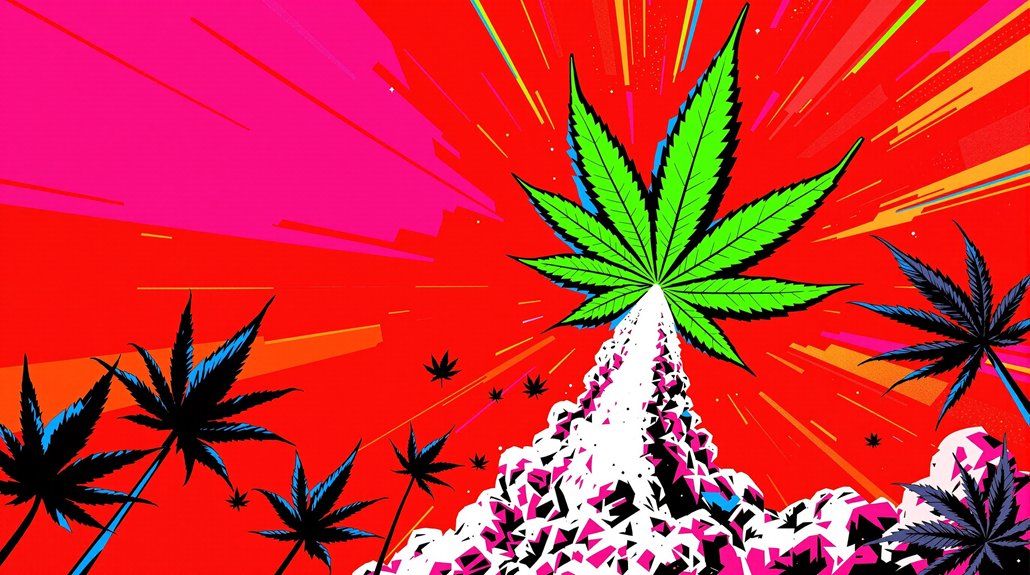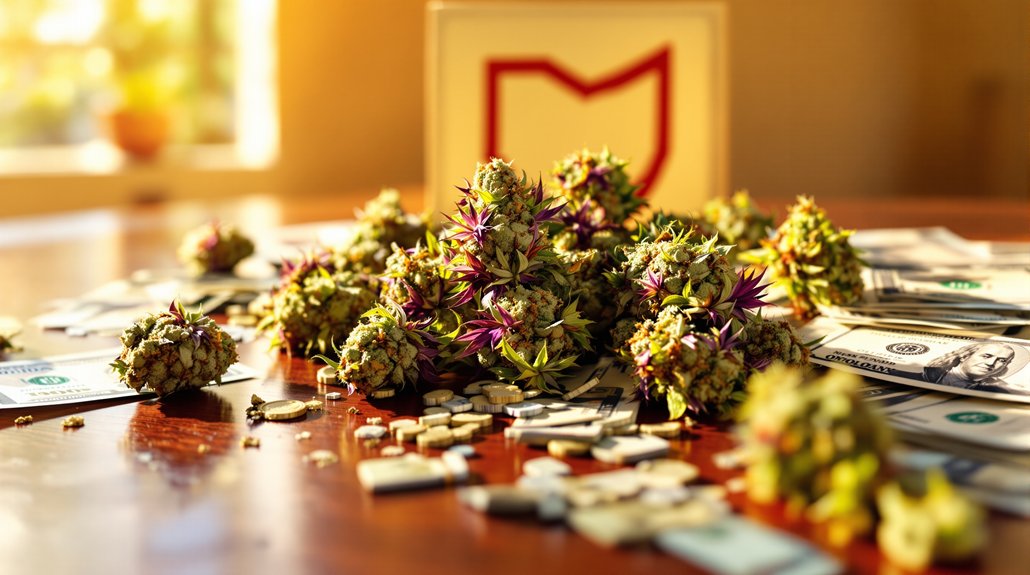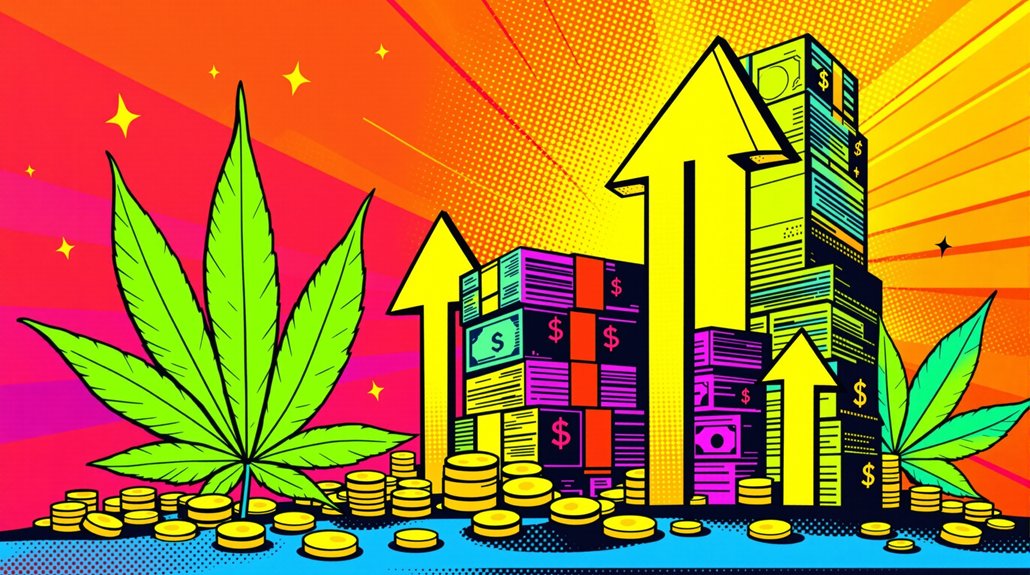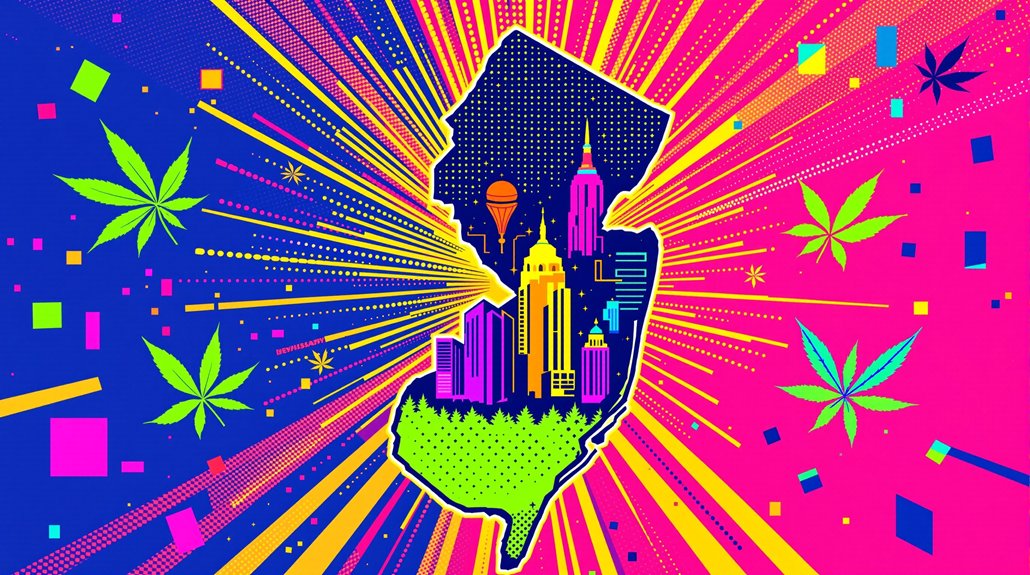Since Canada legalized recreational cannabis in October 2018, the nation’s cannabis market has evolved into a formidable economic force worth $13.0 billion in production value by 2025. The sector’s remarkable 10.6% compound annual growth rate between 2020-2025 demonstrates how quickly legal cannabis transformed from regulatory experiment to economic powerhouse. More impressively, the industry contributed CA$9.1 billion to GDP in Q1 2025 alone, up from CA$8.3 billion the previous year.
The battle against illegal cannabis appears increasingly one-sided. Legal market operators have captured the larger share compared to illicit competitors by 2023, with 69% of Canadians now “always” obtaining cannabis legally. Only 9% never purchase through legal channels. Meanwhile, unlicensed production dropped 4.5% year-over-year, and unlicensed store sales declined 4.4% during the same period. The numbers suggest black market dealers are losing ground fast. While adults are permitted to possess up to 30 grams of dried cannabis in public, exceeding this limit results in criminal penalties and potential fines.
Legal cannabis operators have decisively outmaneuvered black market competitors, with 69% of Canadians now purchasing exclusively through legitimate channels.
Consumer spending patterns reveal shifting preferences within the legal framework. CBD products held the largest market share due to increased medical treatment awareness. The recreational segment drives innovation in vapes, edibles, and cannabis-infused beverages. These are products that illegal operators struggle to match in quality and consistency. Healthcare professionals increasingly prefer cannabinoid-based formulations for their therapeutic applications, further legitimizing the legal market.
Technology adoption separates legal producers from their illicit counterparts. Indoor cultivation outpaces outdoor growing through advanced quality control and technological integration. AI and automation increasingly handle cultivation and processing tasks, ensuring product standards that street dealers simply cannot replicate. This tech-driven approach attracts talent from biotechnology, agriculture, and pharmaceutical industries.
Major players like Canopy Growth demonstrate market confidence through substantial investments, including a USD 250 million equity program launched in June 2024. Federal production controls combined with provincial distribution management create structured growth opportunities that illegal operations cannot access. The regulatory framework, while complex, provides legitimate businesses with clear operational guidelines and consumer trust.
Employment generation extends beyond direct cannabis jobs into supply chain, packaging, marketing, and compliance roles. The sector’s expansion mirrors the U.S. cannabis industry’s employment impact, which supports over 440,000 full-time equivalent positions. Canada’s cannabis workforce continues growing as companies scale operations and explore new product categories. Despite the impressive growth trajectory, the industry experienced market fluctuations between 2019 and 2024 with a negative 1.4% CAGR during this period.
Looking ahead, market projections suggest continued legal market dominance. The legal cannabis market value is expected to reach USD 5.79 billion with a 12.0% CAGR through 2030. Regular policy adjustments based on Canadian Cannabis Survey data help streamline legal access while restricting underage use. The black market isn’t dead yet, but its days appear numbered.










